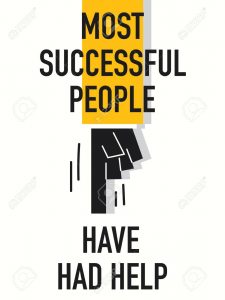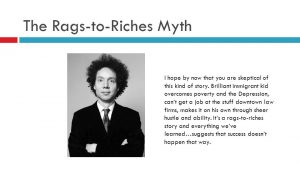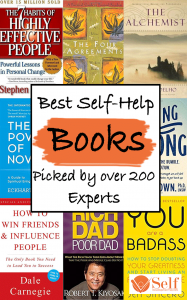By Ray Williams
November 28, 2020

Do you want to be successful in your career and life? Just follow the example of the superstars of business, celebrities, professional athletes and entertainers. Emulate the habits of Elon Musk, Jeff Bezos, Warren Buffett, Bill Gates, or Sir Richard Branson. Or in athletics, follow the diet and exercise routines of Tom Brady, Roger Federer, Serena Williams or Stephen Curry. Or at the organizational level, just follow the examples of Apple, Google or Amazon. Thousands of books, movies, seminars, consultants and self-help gurus, exhort people to follow the same steps, habits and secrets of the super successful, and they too will achieve outstanding results.
You can read hundreds of articles daily about the top 10 things successful people do in the morning, the clothes they wear, and their personal habits. These articles are in the same category as books that promise to help you think like Bill Gates, carve intricate wooden oars like Sheryl Sandberg & shuck oysters like Elon Musk. They’re useful, they’re interesting but they won’t help you become like them. In fact, they could do more harm than good.
Here’s some examples of the kind of articles that are commonplace:
- “Successful people get 8 hours of sleep every night”.
- “Successful people work 80-100 hours per week.”
- “Successful people get up between 4-5 am every day.”
- “I adopted rich peoples’ habits: See how my life changed.”
- “What Steven Jobs, Oprah and other successful people do every day.”
The idea that if you can find out how successful people live and then copy them, you’ll be able to be like them, is more fantasy than fact. If finding great success was as easy as following a laundry list of habits or skills, then we would have millions of highly successful people and the superstars would be difficult to identify. By definition, superstars stand out because they are so few.

Here are the flaws in the idea of copying the supersuccessful:
Flaw #1: Correlation is not cause and effect.
A successful person may have certain habits or skills, but there is no way to prove they were the cause for success. There are too many other variables to account for.
Flaw #2: We discount luck.
Many super successful people will tell you they were lucky to have been at the right place at the right time. Everyone can’t be at the right place at the right time. According to both fascinating new science highlighted by the MIT Technology Review and a handful of honest entrepreneurs. Luck plays a way bigger role in success than most of us acknowledge. If you try to follow the path of your business role models without acknowledging that fact, you’re likely to run into some very serious problems.

Success, as we all know, isn’t evenly spread throughout the population. In fact, its distribution follows what’s known as a power law curve. A tiny number of people end up with the vast majority of money, or music or movie hits, or whatever other marker of material success you’re looking at. As the MIT article points out, success may be wildly unequal, but talent and intelligence are spread much more evenly throughout the population. “While wealth distribution follows a power law, the distribution of human skills generally follows a normal distribution that is symmetric about an average value. For example, intelligence, as measured by IQ tests, follows this pattern. Average IQ is 100, but nobody has an IQ of 1,000 or 10,000. The same is true of effort, as measured by hours worked. Some people work more hours than average and some work less, but nobody works a billion times more hours than anybody else,” the research argues. Yet some people do end up with a billion times more money.
To investigate why, a team of Italian scientists recently built an eye-opening computer simulation of career success. The team created a hypothetical population of people endowed with the standard distribution of talent and intelligence and then ran these individuals through a 40 year simulated working life, injecting both lucky and unlucky events into the timeline. At the end, the researchers checked to see if the resultant spread of wealth matched the distribution of wealth in the real world. It did, again and again. The model held up.
So what drove the unequal distribution of success in the model? Was it that talent and drive compounded over time produced the simulated equivalent of Bill Gates or Jeff Bezos? No, the scientists found that success is mostly a matter of luck.
“It is evident that the most successful individuals are also the luckiest ones,” the scientists report. “And the less successful individuals are also the unluckiest ones.” Talent and effort matter, but pure chance matters a whole lot more. Exceptional performance is often a convergence of the right person at the right time — Winston Churchill and the Second World War, for example. It’s not possible to replicate all the variables of context for anyone at any time, regardless of skills and abilities.
Consider some findings of the Italian researchers’ study:
- The chance of becoming a CEO is influenced by your name or month of birth.The number of CEOs born in June and Julyis much smaller than the number of CEOs born in other months.
- Those with last names earlier in the alphabet are more likely to receive tenure at top departments in Universities.
- The display of middle initials increases positive evaluations of people’s intellectual capacities and achievements.
- People with easy to pronounce names are judged more positively than those with difficult-to-pronounce names.
- Females with masculine sounding names are more successful in legal careers.
In recent years, a number of studies and books–including those by risk analyst Nassim Taleb, investment strategist Michael Mauboussin, and economist Robert Frank– have suggested that luck and opportunity may play a far greater role than we ever realized, across a number of fields, including financial trading, business, sports, art, music, literature, and science. Their argument is not that luck is everything; of course talent matters. Instead, the data suggests that we miss out on an important piece of the success picture if we only focus on personal characteristics in attempting to understand the determinants of success.
The Italian researchers hint at another key strategy for improving your odds of success in a world ruled by chance — place lots of bets. The researchers followed up their simulation by investigating how funding for scientific research should be allocated given the hefty influence of luck on success. Their conclusion: give everyone a shot by handing out a little funding to all, or if that’s not practical, then choose folks for funding randomly. But whatever you do, don’t think you can predict who will be successful. You can’t.
The bottom line is, like it or not, luck plays an outsized role in success. The right response isn’t to pretend that you can somehow outwit or outwork that reality. Instead, increase your odds of hitting the success jackpot by trying lots of things and following your own skills and passions.
Flaw #3: Super successful people had a lot of help.
Most of them will tell you (except perhaps the egotistical or narcissistic ones) they had the benefit of others helping them or being born into a situation which gave them advantages. New research provides an additional perspective on the issue. Chengwei Liu of the University of Warwick Business School and Jerker Denrell of Oxford Said Business School published recent research in the Proceedings of the National Academy of Sciences which argues that “we should stop rewarding top performers, because that leads to problems.”
The authors argue that the idea the exceptional performers are the most successful is flawed. “The reason is that exceptional performance often occurs in exceptional circumstances. Top performers in business are often the luckiest people, who have benefited from rich-get-richer dynamics that boosts their fortune,” they write.
They cite the example of Bill Gates, who once became the richest man in the world. Scores of writers and “experts” recommended following the habits and path of Gates. He may have been very talented, but Liu and Denrell argue, “his extreme success tells us more about how circumstances beyond his control created such an outlier.” For example, Gates’ upper class background enabled him to gain extra programming experience, and his mother’s social connection with IBM’s chairman enabled him to gain a contract from the then leading PC company.
“Our research found that even though observers were given clear feedback and incentives to be accurate in their judgment of performers, 58% of them still assumed the most successful were the most skilled when they are clearly not, mistaking luck for skill.” As a result, the authors argue, this assumption is likely to led to disappointment. Even if you imitated everything Bill Gates did, you would not be able to replicate exactly his resources and connections.

In a similar vein, Sir Richard Branson admitted in his autobiographical works that he probably wouldn’t have achieved success if his mother hadn’t bailed him out of serious financial difficulty more than once in his life.
It’s no accident that 76% of millionaires in the U.S. are white, and about 88% of billionaires in the world are men. Women and people of color encounter systemic discrimination when accessing things like loans, housing, and jobs, and communities of color have fewer resources to transfer intergenerationally due to the legacies of slavery, mass incarceration, and stolen Native land, among other things.
Former Governor of California, actor and bodybuilder Arnold Schwarzenegger, who made the commencement address at the University of Houston , told students that community is crucial and that there is no such thing as a “self-made man.” The concept, he said, “is a myth.” He said that he wouldn’t be where he is without the help of many other people, including “my parents, my mentors, my teachers.”
The Forbes cover story calling Kylie Kardasian’s near billionaire status “self-made” sounds a lot like Donald Trump essentially classifying his beginnings in Brooklyn as humble, even though his father gave his son $400 million to help with his failed business ventures.
Wealthy people, especially American white ones, profit off the ideas and cultures of other people — Kylie and the Kardashians, for example, have been accused of profiting off of black culture and copying black designers.
Warren Buffet, the second richest man in the world said, “I personally think that society is responsible for a very significant percentage of what I’ve earned.” Erick Schmidt, former CEO of Google says, “Lots of people who are smart and work hard and play by the rules don’t have a fraction of what I have. I realize that I don’t have my wealth because I’m so brilliant.”
As the grandson of a senator, George W. Bush is not only the son of a president, but is also a member of wealthy business elite. John Kerry, on the other hand, married a very wealthy woman after receiving his education at a Boston posh private school, and subsequently Yale. There, and just like the Bushes, Kerry belonged to the ultra-select Skull and Bones society. Al Gore is a Harvard graduate whose father was a senator, while John McCain’s grandfather and father were the first pair of father/son Four-Star admirals in the United States Navy.
Each and every year Forbes magazine celebrates America’s billionaires as paragons of entrepreneurial success, asserting that the list “instills confidence that the American Dream is still very much alive.” Of the America’s current 400 richest, Forbes explains, 70% “made their fortunes entirely from scratch.” Most news media took that claim at face value and did little or no fact checking.
However, researchers at a Boston-based group, United for a Fair Economy, investigated the actual backgrounds of the Forbes 400. They concluded that most of the super rich were born with advantages, concluding Forbes was spinning a “misleading take of what it takes to become wealthy in America. Most of the Forbes 400 have benefited from a level of privilege unknown to the vast majority of Americans.”The study concluded that more than 60% of those on the list all grew up in substantial privilege with inheritances up to $1 million, and 11.5 of those on the list have inheritances well over $1 million. Seven per cent of those on the list had inherited wealth over $50 million.
Stephen McNamee and Robert Miller of the University of North Carolina, argue in their book, The Meritocracy Myth that there is a serious gap between how people think our economic system works and how it actually works. The authors cite data which shows the richest 1% of households account for 30% of all available net worth. Economic inequality in the U.S. is the highest among all industrial countries.
When the Pew Economic Mobility Project conducted a survey, 39 % of respondents said they believed it was “common” for people born into poverty to become rich, and 71 % said that personal attributes like hard work and drive, not the circumstances of a person’s birth, are the key determinants of success. Yet Pew’s own research has demonstrated that it is exceedingly rare for Americans to go from rags to riches, and that more modest movement from the bottom of the economic ladder isn’t common either.
A Pew Foundation study, reported in the New York Times, concluded, “The chance that children of the poor or middle class will climb up the income ladder, has not changed significantly over the last three decades.”The Economist’s special report, “Inequality in America,” concluded, “The fruits of productivity gains have been skewed towards the highest earners and towards companies whose profits have reached record levels as a share of GDP.”
Flaw #4: In the Western world, but particularly in the U.S., success is primarily defined as those people or are wealthy or celebrities.
We rarely hear stories of super successful teachers, social workers, or nature conservationists. Yet, there are many definitions to success. For some it may mean being happy always. If happiness and peace of mind are what you are looking for, then following a wealthy person’s life diverts you from what really matters to you.
Also, everyone pretends that the word success has nothing to do with money and status. But that’s simply not true. When we talk about success, we all talk about getting rich. Just be honest.“Notice how we all assume that when you say “become successful” you really mean “get rich”.”
Let’s not pretend that “only you can determine the definition of success,” and then obsess about the lives of the superrich.

In 2003, the New Scientist magazine reported that 30% of Americans were suffering from something it called celebrity-worship syndrome, or CWS, indicating that the phenomena was on the rise. Helen Fischer of Rutgers University, and author of Why We Love: The Nature and Chemistry of Romantic Love, explains the phenomena by saying that gossip about celebrities is the equivalent of sitting around the campfire with stories during our ancient tribal times.
Mark Shaller, a psychology professor at the University of British Columbia, sees it as an issue of familiarity. After seeing actors in their underwear and sometimes a lot less, we recognize them and they become familiar, like family, so we make a family-like connection. Douglas Kenrick at Arizona State University argues that we believecelebrities are the highest part of our gene pool, and we allocate them special status as a result. Fisher extends this ideas to explain how our brain’s chemistry works. For some, following celebrities becomes addictive behavior, stimulated by increased dopamine levels in their brains.
These days, networks such as CNN endlessly run “news stories” with titles such as “Best cars for the super rich“. We have television shows where people proudly show off how wealthy they are, and it seems like Hollywood is putting out an endless parade of movies that glorify the lifestyles of the elite. We have hordes of motivational speakers and “life coaches” who will teach you how to be “more successful” in life, and every small movement in the stock market is carefully monitored by the mainstream news media. Even in the world of faith, we have an entire class of ministers known as “prosperity preachers”, and many of those ministers wear that label quite proudly. Increasingly the belief “greed is good” and you need more and better things is becoming pervasive in the U.S. As a society, Americans love money and possessions and they are not ashamed to admit it. Time Magazine published an article this year entitled “Science Proves It: Greed Is Good” and hardly anyone even raised an eyebrow.

Is someone a Socialist to say that someone can have too much money? That is one of the central questions posed by Generation Wealth, a documentary about society’s insatiable appetite for money. Director Lauren Greenfield makes the case that during the past half-century, an obsession with wealth has spread throughout the world like a virus, corrupting the American dream and putting humans on a path that undermines their own well-being.
Where Greenfield succeeds is in her argument that the American dream has changed from working hard and getting ahead to getting rich and living glamorously. Interviews with Wall Street executives and bus drivers alike support her premise that society has created what Greenfield calls a “huge aspirational gap between what we want and what we can afford.” The rise of social media and digital entertainment have contributed to that change, Greenfield argues.
“People used to compare themselves to their neighbors, and they aspired to be the neighbor that had a little bit more than they had,” Greenfield says in the film. “Now people spend more time with the people they see on TV than their actual neighbors, and they want what they have.”
“Corporate capitalism pushes people towards this constant search for the next adrenaline rush,” Pulitzer Prize-winning journalist Chris Hedges says in the film. “People seek that momentary ecstasy.”
Though Generation Wealth casts a shadow over capitalism in the 21st century, its real message is that only capitalism at the expense of everything else has the tendency to corrupt. “Unfettered, unregulated capitalism does what it’s designed to do, which is commodify everything,” Hedges says. “Even human beings become commodities that you exploit for profit, until exhaustion or collapse.”
Why are one in three American adults pervasively dissatisfied with their lives? Why is major depression seven times more likely among those born after 1970 than their grandparents? Why are one in four addicted to at least one substance or behavior? Why is America drowning in record personal and public debt? Why did over 100,000 people humiliate themselves this year auditioning for Fox’s American Idol?
Drawing from emerging science in several fields and insights about our transformed social lives, Jim Rubens in his book OverSuccessexplains how genes, commercial culture, and global hyper-competition have locked tens of millions of Americans into an unwinnable success benchmarks race and unleashed an epidemic of status defeat.
Flaw #5: We perpetuate the myth that hard work alone will guarantee you success.
Hard work is seen as a powerful factor in meritocracy and a necessary element for acquiring the American Dream. National surveys have found that hard work consistently scores among the top three factors necessary for success, and ranks with education and knowing the right people as its closet competitors. According to one survey, 77% Americans believe that hard work is often or very often the reason why people are rich in America. More than a third of all Americans — and more than half of all Republicans — believe that the rich are rich because they worked harder than everyone else. When pressed for proof, they usually point to surveys showing that the rich spend more hours working and fewer hours in “leisure activities” than everyone else. And 43% say wealthy people became rich “mainly because of their own hard work, ambition or education,” largely unchanged from a Pew survey in 2008.
Researcher Barbara Ehrenreich found, when she spent a year doing menial jobs in a participant observation study, often the hardest working Americans are those who get paid the least. America is an individualistic society, most people in it believe that success is directly correlated to hard work., Yet, as McNamee and Miller point out in their research, many people who work hard are not especially successful.
One might argue that many exceptional performers still gained their exceptional skill through hard work, exceptional motivation or “grit”, so they do not deserve to receive lower reward and praise. Some have even suggested that there is a magic number for greatness, a ten-year or 10,000-hour rule. Many professionals and experts did acquire their exceptional skill through persistent, deliberate practices. In fact, Gates’ 10,000 hours learning computer programming as a teenager has been highlighted as one of the reasons for his success.

But detailed analyses of the case studies of experts often suggest that certain situational factors beyond the control of these exceptional performers also play an important role. For example, three national champions in table tennis came from the same street in a small suburb of one town in England.
This wasn’t a coincidence or because there was nothing else to do but practice ping pong. It turns out that a famous table tennis coach, Peter Charters, happened to retire in this particular suburb. Many kids who lived on the same street as the retired coach were attracted to this sport because of him and three of them, after following the “10,000-hour rule”, performed exceptionally well, including winning the national championship.
Their talent and efforts were, of course, essential for realising their exceptional performances. But without their early luck (having a reliable, high-quality coach and supportive families), simply practicing 10,000 hours without adequate feedback wouldn’t likely lead a randomly picked child to become a national champion.
In books like Paul Tough’s How Children Succeed, Malcolm Gladwell’s Outliers, and Amy Chua and Jed Rubenfeld’s The Triple Package: How Three Unlikely Traits Explain the Rise and Fall of Cultural Groups in America, really smart people attempt to describe what character traits are essential for success. While their formulas vary, there is one constant: the idea of “grit.” Grit has many definitions, including “perseverance and passion in achieving long-term goals.”
But at the core of their descriptions is grit defined as “persistence of motive and effort.” In others words, persistence in hard work. These books are all well-written and valuable contributions to better understanding the dynamics of moving up the ladder in life. They each also fall back on the overwhelming importance of working hard–in this case, defined as doing so over the long haul. Again no doubt that grit or hard work–whatever you want to call it–is critical to success. A new spin on an old theme carries with it the risk of minimizing the importance of many of the other things we talk about here. The solution isn’t to just teach “grit” but to figure out how to minimize its necessity.
Anders Ericsson and co-author Robert Pool wanted to clarify what the science actually says, highlighted in their new book Peak: Secrets From the New Science of Expertise. They laid out some of its main points in an excerpt, where they mentioned the fundamental flaws with the 10,000-hour rule:
- Problem 1: The number 10,000 was chosen arbitrarily. First, there is nothing special or magical about ten thousand hours. Gladwell could just as easily have mentioned the average amount of time the best violin students had practiced by the time they were eighteen (approximately seventy-four hundred hours) but he chose to refer to the total practice time they had accumulated by the time they were twenty, because it was a nice round number.
- Problem 2: 10,000 hours was only the average. Second, the number of ten thousand hours at age twenty for the best violinists was only an average. Half of the ten violinists in that group hadn’t actually accumulated ten thousand hours at that age. Gladwell misunderstood this fact and incorrectly claimed that all the violinists in that group had accumulated over ten thousand hours.
- Problem 3: Practice itself isn’t enough. Third, Gladwell didn’t distinguish between the type of practice that the musicians in our study did–a very specific sort of practice referred to as “deliberate practice” which involves constantly pushing oneself beyond one’s comfort zone, following training activities designed by an expert to develop specific abilities, and using feedback to identify weaknesses and work on them.
A new meta-analysis, however, indicates that the 10,000 hour rule simply does not exist. As Brain’s Idea authors of the new study undertook the largest literature survey on this subject to date, compiling the results of 88 scientific articles representing data from some 11,000 research participants. Practice, they found, on average explains just 12 percent of skill mastery and subsequent success.
The belief that hard work is the only or a major factor that accounts for the super successful is another myth to be dispelled. Workaholism is the respectable addiction in our society but it’s costing organizations in terms of loss of productivity, poor relationships and employee engagement.
In the late 1700’s, Benjamin Franklin predicted we’d work a 4-hour week. In 1933 the U.S. Senate passed a bill for an official 30-hour workweek, which was vetoed by President Roosevelt. In 1965, a U.S. Senate subcommittee predicted a 22-hour workweek by 1985 and a 14-hour work week by 2000. None of those predictions have come to pass. In fact the opposite is true. The number of hours people work is increasing. Working hours in North America have steadily risen in the last 20 years. A DIT research report found that 1 in 6 employees now work more than 60 hours a week. British Medical Association report found that 77% of consultants work more than 50 hours a week and 46% work more than 60 hours.
According to U.S. Census and CPS data, the share of employed American men regularly working more than 48 hours per week is higher today than it was 25 years ago. Using CPS data from 1979 to 2006, this increase was greatest among highly educated, highly-paid, and older men, was concentrated in the 1980s, and was largely confined to workers paid on a salaried basis. A new study by the OECD confirms that on average, people in the U.S. are putting in 20 per cent more hours of work than they did in 1970.
In general, a third of all American workers could be viewed as chronically overworked in 2004, according to a report by the nonprofit Families and Work Institute in New York City. The problem of increased working hours is made more acute by the fact that fewer workers take vacations and breaks than previously. One recent study by Expedia.com showed that only 38% of U.S. employees are taking all of their earned vacation days. The average used only 14 out of 18 days. At least 30 percent of employed adults don’t take all their vacation days, according to a 2005 Harris Interactive poll. Each year, Americans hand back 421 million days to their employers.
The impact on people and the organizations of overwork are significant. In 2002, The Work Foundation reported that job satisfaction has plummeted and that so-called “high performance” management techniques actually increased worker dissatisfaction and performance.
Most people have been told all their lives that the only way to be successful in life is to work harder and longer than the next guy. But the evidence tells us that that’s simply not true. Consider some of the most successful people of our time: Warren Buffett has a tiny office and employs only a handful of people. He works about three hours a day, but he’s one of the richest men in the world. Bill Gates dropped out of college but went on to create one of most influential and successful companies in the world. Neither George W. Bush or Ronald Reagan were fans of hard work, yet they were both elected president of the United States twice.
From childhood, parents and teachers drum into us the moral virtue of effort, and the importance of “doing your best”. Numerous approaches to productivity—even the best ones, like David Allen’s Getting Things Done—encourage a “cross-it-off-the-list” mindset: They’re so preoccupied with clarifying and keeping track of your to-dos, you forget to ask if they’re the right tasks to begin with.
And too many workplaces still subtly communicate to employees the idea that intense effort, usually in the form of long hours, is the best route to a promotion. In fact, though, if you can do your job brilliantly and still leave at 3 p.m. each day, a really good boss shouldn’t object. And by the same token, you shouldn’t cite all the effort you put in when making your case for a raise. Why should a results-focused boss even care?
Flaw #6: Comparing yourself to super successful people most frequently results in a negative mindset and demotivation due to the perceived gap between where you are and where they are.
College mental health experts directly attribute much of modern young adults’ malaise to consequences of social comparison—comparing one’s own accomplishments, looks, athletic prowess, school grades, or popularity—to their classmates and feeling that they’re coming up short, often with devastating consequences.
It’s not just college students who compare themselves to others. Most of us have compared ourselves to a friend, colleague, or even a celebrity, in a quest to figure out “how we’re doing.” It’s hard not to do when magazine articles celebrate “The Top 40 Under 40,” and yoga clothing catalogs showcase images of CEO moms who build orphanages in their spare time. It’s hard for our own lives to shine in comparison.
Others’ so-called “perfection” is an illusion. The glorious vacations, the enviable professional accomplishments, the perfect children and spouses we see on our friends’ Facebook pages are just one sliver of their real lives.
Let’s face it: What people present to the outside world is usually an edited version of their reality. When someone asks you how you are doing, how often do you respond by saying, “my husband is driving me crazy, I’m feeling like a failure at work, and I’m just about ready to lose my mind”? Instead, you probably bite your tongue and say “things are really great!” A recent study in the Personality and Social Psychology Bulletin confirmed that people are less likely to reveal their negative emotions than their positive emotions.
Additionally, the study found that people tend to overestimate the presence of positivity in the lives of others, while they misinterpret or fail to detect negative feelings in others. So not only is what’s being delivered an incomplete picture, we tend to distort the information we do receive — a double whammy. So next time you find yourself comparing to someone else stop and ask yourself if it is really fair to compare when you don’t have all of the information. The reason we struggle with insecurity is because we compare our behind-the-scenes with everyone else’s highlight reel.
Comparisons turn friends and allies into rivals.In a perfect world, we would celebrate and genuinely enjoy the joys and accomplishments of others. Yet if we use others as a benchmark to evaluate ourselves, that creeping twinge of jealousy may undermine our ability to truly cherish the good things that come to others. Just remember: Over time, things may even out, and a friend’s success may enable him or her to support and make opportunities for others (including you).
Comparisons are damaging to your sense of self.Mark Twain said that “comparison is the death of joy,” and the science agrees. Research has found that comparing breeds feelings of envy, low-self confidence, and depression, as well as compromises our ability to trust others. While downward comparison, comparing ourselves to those less fortunate, can provide some benefit to one’s sense of self, even this form of comparison comes at a price. It requires that we take pleasure in someone else’s failures or misfortunes in order to feel adequate, which can fuel mean-spirited competitiveness versus collaboration; jealousy versus connection. When comparing leads you to devalue yourself or others you’ve entered dangerous territory.
According to two new studies published in the journal Cyberpsychology, Behavior, and Social Networking. Social networking isn’t inherently bad for people’s mental health, the results suggest, but when people start using social media to compare themselves to each other, the dark side of social networking starts to rear its head.
The first study, from researchers at University of Michigan, surveyed 1,104 college students about topics including their Facebook use and psychological wellbeing. The researchers then looked for patterns linking people’s Facebook habits to their mental health, and in particular their self-esteem. The researchers found that people who used Facebook more often tended to compare themselves to other people more, and to objectify themselves more. Social comparison and self-objectification, in turn, had a whole range of ugly effects. People who engaged in these behaviors more also had worse mental health, lower self-esteem and greater body shame on average. It’s not that people’s self-esteem automatically took a hit when they logged onto Facebook. Rather, it’s that when people used Facebook to compare themselves to other people, their mental health suffered.
The second study, from researchers at Bond University in Australia, looked at the relationship between self-worth, self-esteem and Instagram use in 237 young adults between the ages of 18 and 29. It turned out that people who based their self-worth more on others’ approval tended to engage in more social comparison on Instagram, and that people who engaged in more social comparison on Instagram ultimately tended to have lower self-esteem. By the same token, how much people compared themselves to others on Instagram depended on how much the approval of others mattered for their self-worth – people who used Instagram more often tended to engage in more social comparison on Instagram when their self-worth was more contingent on other people’s approval.
The upshot of both studies seems to be that social media is a tool that can be used in different ways, some better than others. Browsing social media isn’t inevitably damaging to people’s self-esteem – but when people start to compare themselves to others on platforms like Facebook and Instagram, that’s when social media usage could become harmful to mental health.
Flaw #7: Self-Help Books and Gurus Perpetuate Myths About Success
Today there is no shortage of self-proclaimed experts claiming to have unlocked the formula for extreme success in all areas of life. According to Marketresearch.com, the U.S. self-improvement industry is predicted to be worth $13.2 billion by 2022.
The self-help industry runs on several well-established assumptions, including: If it worked for them, it will work for me.Which is why a week doesn’t pass without a new article trending on how to copy the reading habits, morning routines and bedtime practices of uber-successful people.Obviously, we are fascinated by individuals who are exceptionally good at what they do. Their personal stories provide useful reminders that mastery doesn’t happen overnight.
According to a recent study conducted by The University of Montreal, consumers of self-help books are more sensitive to stress and show more depressive symptoms than those who don’t read such literature. The study found zero correlation between reading self-help and maintaining desirable qualities like emotional stability, self-esteem and self-discipline.
The Hero’s Journey is a common structure used to tell the story of how a normal individual follows a journey to achieve extraordinary success. The unknowing hero is presented with a call to action, which he/she initially rejects, before finding a mentor and going on the adventure. He/she endures a series of trials and tribulations, often facing a major life altering ordeal or crisis such as the death of a friend or the mentor. With renewed energy after the crisis, he/she eventually conquers the original challenge and return home victorious.The story of Luke Skywalker in Star Wars follows this pattern. As does the story of Harry Potter, the Lion King, and almost every Superhero origin story ever written.
Unfortunately, even the most well written stories attribute the hero’s success to a unique talent a hero had within, that no one else can match. These hero stories grossly overlook the trials, tribulations, and hard work, our favorite heroes have endured to achieve that success. These stories often paint these challenges as one-time painful moments, versus the years and years of ongoing struggle these heroes actually endure.
Dale Carnegie, almost 80 years ago, a wildly popular lecturer in self-improvement right across Depression-era America, is in many ways the daddy of the whole self-help movement. His 1936 book, How to Win Friends and Influence People, set the benchmark for the kind of navel-gazing that asked us all to pull up our bootstraps, and go make something of ourselves. The book has now sold more than 16 million copies around the world, and, in addition to helping legions of the presumably needy, it has also encouraged others to do much as he had done: write a tome about how others can empower and better themselves.

Informal guides to everyday behavior might be said to have existed almost as long as writing itself. In Western culture, a line of descent may be traced back from Smiles’ Self-Help to when the Renaissance concern with self-fashioning produced a flood of educational and self-help materials.
It is, however, in the last half-century or so that the humble self-help book has jumped to cultural prominence, a fact admitted by both the advocates and the critics – often highly polarized – of the self-improvement genre.
Many celebrities have marketed self-help books including Jennifer Love Hewitt, Oprah Winfrey, Elizabeth Taylor, Jane Fonda, Gwyneth Paltrow and Jim Carrey.
From humble beginnings, self-help books have now dominated huge and ever-growing areas of bookshops. Best-selling titles like ‘Men Are from Mars, Women Are from Venus‘, or ‘Don’t Worry, Make Money‘ promise to teach us how to fix our relationships and live ‘more fully’. But are these, and other come-ons, just empty assurances designed to sell a product?
While the advice of philosophers like Epicurus and Schopenhauer, comes to us with the luster of intellectual achievement, modern self-help books often don’t. Worse, they can seem tacky, opportunistic and filled with psychobabble.
Despite their huge sales and continuing popularity, self-help books have faced fierce criticism over the years. Respected psychologists like Dr. Mihaly Csikszentmihalyi have argued that self-help books will clearly not help people to become thin, rich and well-adjusted; indeed they will probably have no effect whatsoever.
Both self-help books and self-help gurus suffer from the following problems in relation to a proposed formula for success:
- They reinforce perceptions of inferiority, inadequacy and shame.
Two types of people get hooked on self-help material: those who feel something is fundamentally wrong with them and they are willing to try anything to make it better, and those people who think they’re already generally a good person, but they have some problems and blind spots and want to become great people. The irony here is that the pre-requisite for self-help to be effective is the one crucial thing that self-help cannot actually help: accept yourself as a person who makes mistakes.
- They create unrealistic expectations. Many of the suggestions or the formulas suggest “3 steps” or “habits” or “10 things,” assuming that all you need to do is follow them and changes toward success will happen miraculously and quickly.
- They are rarely based on any scientific evidence or research studies of human behavior other than anecdotal evidence.
As an example, let’s take a look at one of the most popular publications of recent years, The Secret(‘Whatever you dream of can be yours’), written by Australian TV producer Rhonda Byrne. The Secretwas distributed as a film and a companion book in 2006. Championed by Oprah Winfrey, it shot into the bestsellers list. Worldwide, the DVD has sold more than two million copies, and the book more than four million. In 2007, Byrne was listed as one of Time Magazine’s 100 people who shape the world.

On The Secret website, enthusiasts claim they’ve solved their financial problems, met their perfect partner, cured their infertility and found that success that has eluded them. In Rhonda Byrne’s case, the belief system is a New Age philosophy that is unabashedly evocative of the Da Vinci Code.
The ‘Secret’ has been known by a select few throughout history, Byrne informs us — including the Babylonians, Plato, Shakespeare, Beethoven, Abraham Lincoln and Albert Einstein — but has been hidden from the rest of us until she uncovered it. Quite how it works is unclear; but apparently that’s why it’s a secret!
Like many self-help books, there are other problems with The Secret besides its questionable science. One is the blame it confers on people who don’t succeed in attracting what they want. If you don’t get those Louboutin shoes, that promotion, or you have an accident, well, apparently it’s your fault. You were obviously thinking negative thoughts.
Some Final Thoughts
In modern society, we are conditioned from an early age to want things we don’t need. An entire industry has been built around manipulating us into buying products we believe will make us more attractive, happier and respected.
Children watch other children on TV play with newer and better toys, and they automatically want what they don’t have. When adults see good-looking people driving superbly designed cars, the subconscious message is “Buy this car, and you will become more attractive.” Of course if you can’t afford it, implicitly you are a loser.
As we get older, the manipulation becomes more damaging — life choices are made in order to fulfill an implanted image of what we think we should be — we work unfulfilling jobs to pay for the products we think we must own, or worse, go into debt and spend a life time paying it off.
The cycle is vicious. As the wealth divide gets wider, those less fortunate want what the rich have. And in today’s society, they can, as long as they go into debt. And that is the point — feel inadequate because you don’t make enough money; buy stuff you don’t need to compete with people you don’t actually know; go into debt then work ridiculous hours until the debt is paid off. This is our definition of a functioning economy, as eloquently articulated by George Bush after the terrorist attacks on 9/11. “Go shopping,” he told Americans in response to the faltering stock market. Consume and all will be well.
Because of the power of conformity and norms, the belief and expectations for success is pervasive in our society. A fundamental part of those norms have been the placement of wealth and fame as a measure of success (and happiness). And the power of media creates and reinforces over-simplistic and unrealistic expectations for the road to that success based on mimicry, comparison and dissatisfaction with one’s own life. Surely, this is a recipe for individual lifetime of unhappiness and rewarding people through policies and institutions which perpetuate the myths of success.
Copyright: Neither this article or a portion thereof may be reproduced in any print or media format without the express permission of the author.
Read my latest books:
I Know Myself and Neither Do You: Why Charisma, Confidence and Pedigree Won’t Take You Where You Want To Go, available in paperback and ebook on Amazon and Barnes & Noble in the U.S., Canada, Europe and Australia and Asia.

Eye of the Storm: How Mindful Leaders Can Transform Chaotic Workplaces, available in paperback and Kindle on Amazon and Barnes & Noble in the U.S., Canada, Europe and Australia and Asia.


U

